
Hot tag
Popular search
How to Attach Several Televisions to One Antenna?
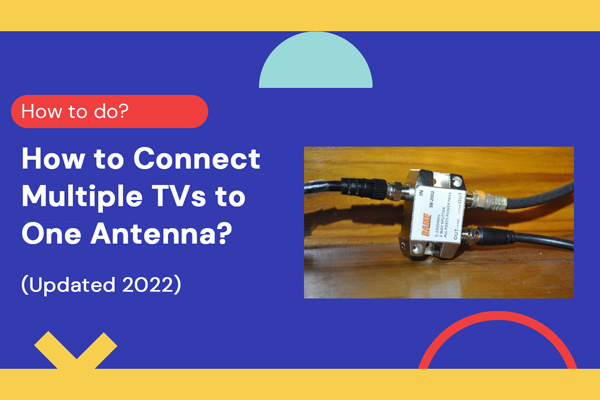
An antenna is always much better as contrasted to a cable television. If you have multiple TVs in your house, as most of the people have, as well as you can not attach a different antenna with every TV so there is a manner in which you can develop the connection of several Televisions with the very same exterior antenna.
Making use of an antenna splitter appears to be a very easy way to establish a connection of numerous TVs with a single antenna. But diminishing a solitary coaxial cable from an outside antenna to your TV is not a basic task. Plus, if you are using low-quality coax, there is a loss of signals in the way as the coaxial cable runs down your house.
Stepwise process for establishing a connection
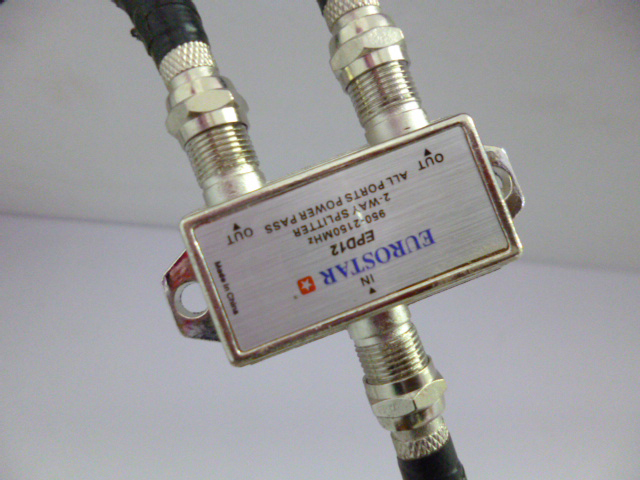
Choosing a coaxial cable
Choosing the right type of coaxial cable is important while you are establishing a connection of multiple TVs with a single antenna. So if you want to choose a coaxial cable, it is always better to go with the copper based cables as they ensure that there is low signal loss as compared to other cables.
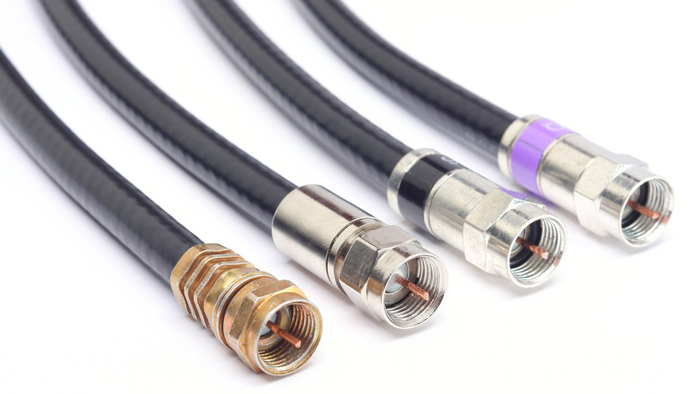
A wiring cable is already given with the antenna. You can also use that cable for establishing the connection, but the picture quality is not promised with it. Using a proper coaxial cable would help you attain good quality signals even if you use a single antenna for connecting the TVs of your entire house.
Choosing a coaxial cable
A wiring cable is already given with the antenna You can also use that cable for establishing the connection, but the picture quality is not promised with it. Using a proper coaxial cable would help you attain good quality signals even if you use a single antenna for connecting the TVs of your entire house.
Choosing the proper kind of antenna
The choice of the indoor and outdoor antenna depends upon the rules and regulations of your area. If you are allowed to have an outdoor antenna, then it is better to get a multi-directional outdoor antenna for establishing a connection throughout your house.
It is due to the reason that outdoor antennas are often mounted have above the ground as the signals are spread in space, so it is better that your antenna is present in space for better reception of two signals.
But it does not mean that you can not have an indoor antenna A powerful indoor antenna can also be a source of signal supply for your TVs. You can also attach one or two degrees with the single indoor antenna and get another antenna for the other TV, respectively.
Now we are ready with the proper antenna and coaxial cable. The next step is to establish a connection of the antenna with all the TVs around your house.
Installation of antenna
Suppose you are installing an outdoor antenna that the position of the antenna should be kept into consideration. For this purpose, you can use a compass for aiming your antenna in the direction of the transmission tower. It is often said that you can place the multi-directional outdoor antenna in any position and direction that you like. Still, even multi-directional outdoor antennas work the best if you have placed them in the proper orientation of the transmission channel.
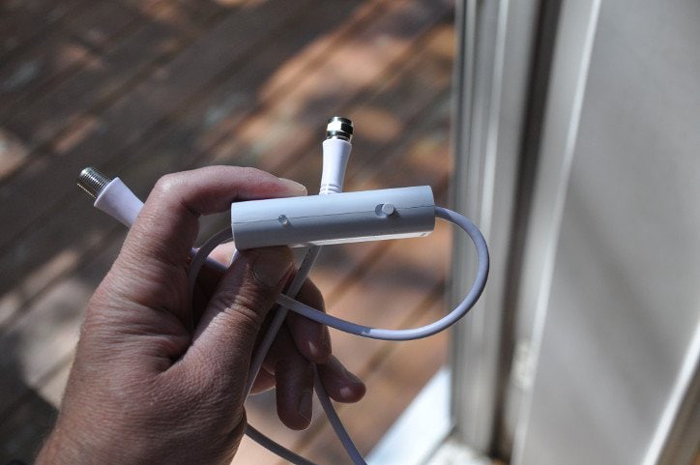
As your TV antenna has been installed, you need to perform a manual scan on your TV to check how many channels you can access from a specific direction of the antenna. Using an amplifier helps to access more TV channels, but it is advisable to perform a channel scan without using an amplifier first.
Choosing the right kind of amplifier
An indoor antenna has an amplifier present to boost the signals; however, with an outdoor antenna, you need an amplifier to improve its working. Exclusively there are two types of amplifiers these are pre-amplifiers and distribution amplifiers.
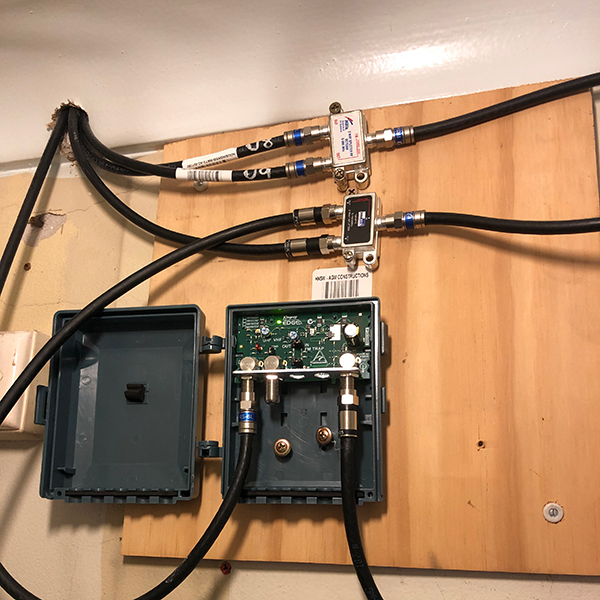
Pre-amplifiers are connected between the coaxial cable and the antenna. It is installed to enhance the signals caught by the antenna before it is received by the TV. Distribution amplifiers are used if we are connecting multiple devices with a single antenna. It improves the signal strength while dividing the signal equally for all the devices. In our case, we would be using a distribution amplifier.
Choosing the signal splitter
You can use a two way or three way splitter 2 way splitter is a balanced splitter and allows the connection at both ends. It has two ports for connecting the coaxial cables with it. A three way splitter is generally unbalanced and has three ports for attaching the coaxial cables. The signal loss occurs through all the connections of the three way splitter.
A balanced three way splitter is also available, which shows that the signal loss is decreased from each of the coaxial ports. So, the choice of splitter that you are going to buy depends upon the number of connections that you want to establish using the splitter.
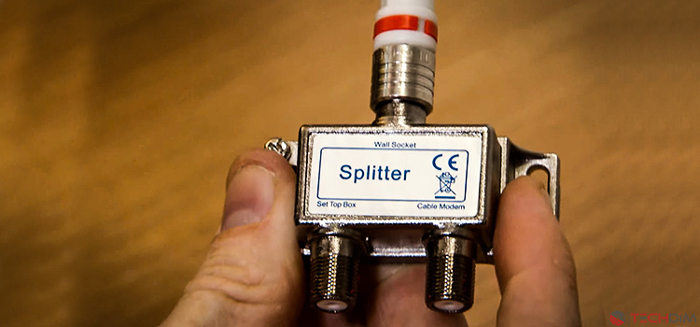
A splitter divides the signal equally throughout your TVs. So once you have attached the sweater to your TV, it is advisable to perform a manual channel scan on your TV to check that how many signals is your signal splitter dropping.
This is how multiple TVs are connected to a single antenna using a coaxial cable, an outdoor antenna, an amplifier, and signal splitters.
Quick procedure to connect multiple TV's with a single antenna
1. Get a combined coaxial splitter and cable. It has many ports for the attachment of several commercial cables to establish a connection of multiple TVs with a single reception antenna.
2. The second step is the placement of your antenna. Mount the outdoor antenna as high as possible for better signal reception.
3. Use a single coaxial cable running down from the antenna into the splitters and then connect multiple coaxial cables with each TV device.
4. The length of the coaxial cable should be increased, likewise depending upon your need to connect all the TV is around your house with a single antenna.
5. It is advisable to secure the coaxial cables in places as high as possible so that you don't trip over them, or the coaxial cable does not appear in the form of a loop, which results in signal loss. Mostly the coaxial cables are kept as close to the roof as possible.
Manual tuning should be done on each television set to search for required TV channels. If you have to connect all the TV is throughout the building, then it is advisable to use more than one splitter. But the quality of coaxial cable should be perfect; otherwise, the picture quality is not guaranteed with every television set.
What is the most important component to making multiple connections?
The most important component of the TV and antenna connection is the signal splitter. As the coaxial cable used in fitting is important, the signal splitter is more important. It is a device used for distributing the signals coming from the antenna throughout your devices with the help of a coaxial cable. It consists of many resistances that enhance the signals coming from antenna feeders and moving towards TV receptors.
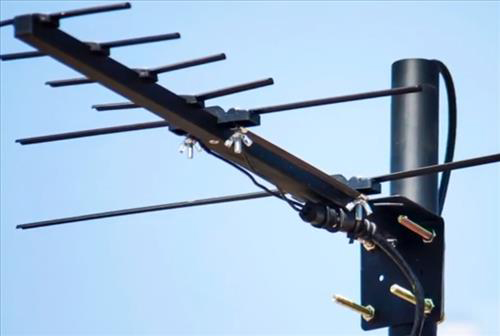
There is a fixed frequency range that a signal splitter allows to pass through it. So, before purchasing a signal splitter, you should check its frequency regarding your antenna. A signal splitter is made up of aluminum makes it more durable and light.
Conclusion
So you can connect multiple TVs with a single antenna using a good quality coaxial cable and a signal splitter. It is advisable to use a directional amplifier to increase signal strength coming from the antenna.
Tags
Contents
Related Articles
CONTACT US


FMUSER INTERNATIONAL GROUP LIMITED.
We are always providing our customers with reliable products and considerate services.
If you would like to keep touch with us directly, please go to contact us




